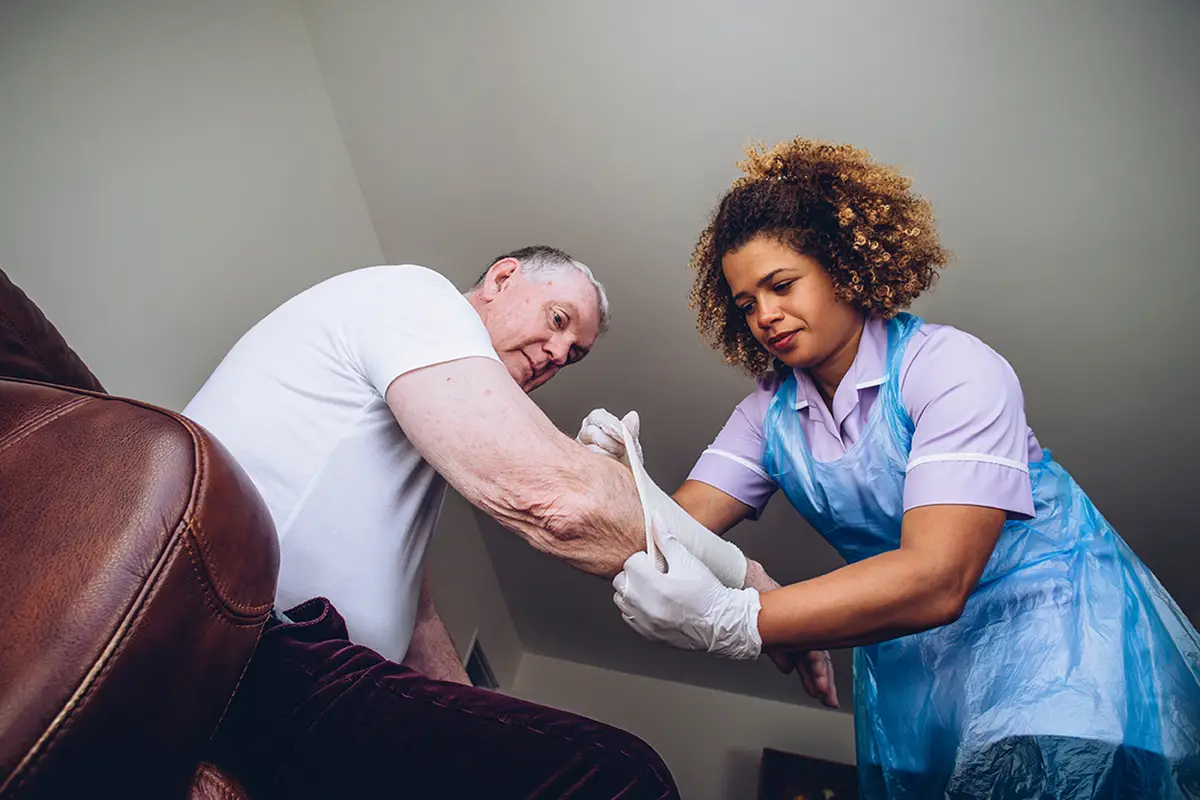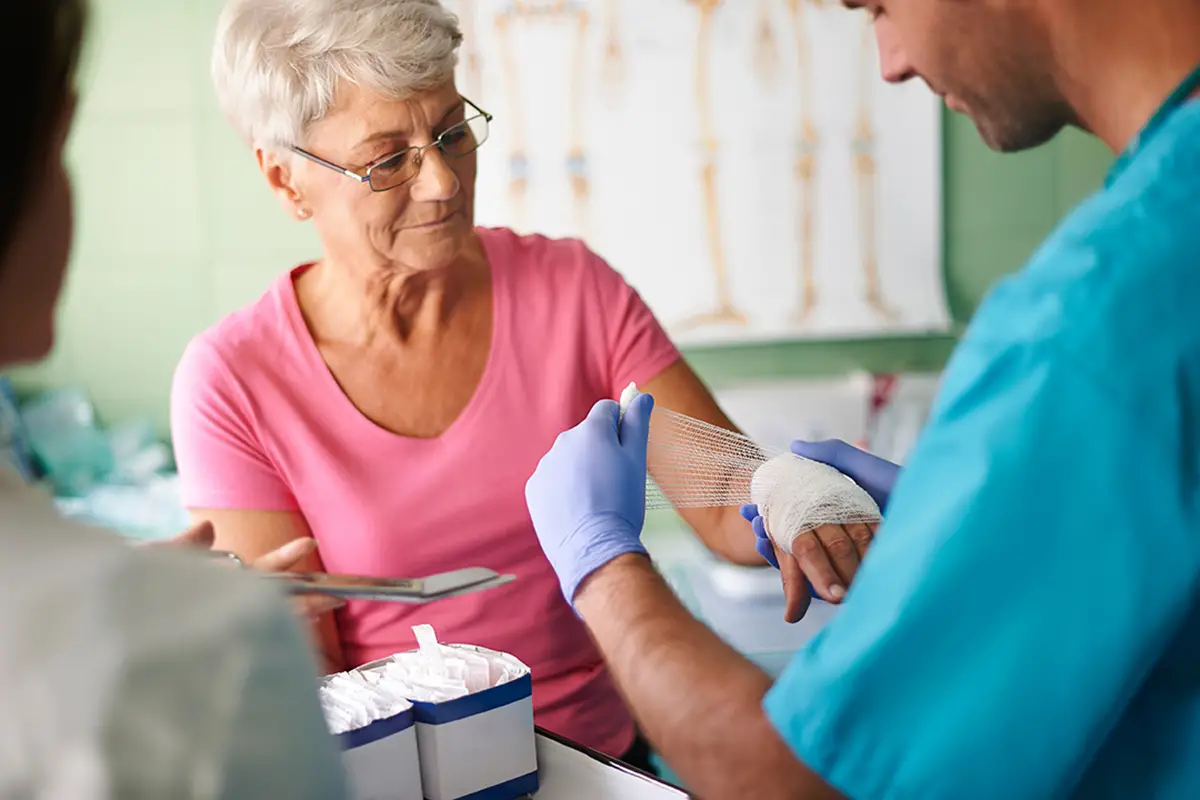Wound Care Services
Wounds caused by surgery, injury, infection and chronic conditions can be difficult to manage at home. Embassy Healthcare offers comprehensive wound care at our skilled nursing facilities.
Proper wound care can help address skin injuries and pre-existing conditions that impede the healing process. Our wound care services are designed to ease discomfort and the likelihood of future wound development.
Our facilities have wound management teams that conduct rounds, assess wounds and direct care. Nurses dispense medication as needed and are available 24/7 to make sure you or your loved one are as comfortable as possible during recovery. Embassy Healthcare also offers transportation services if you or your loved one require assistance from a specialist.




How Wound Care Supports Treatment and Recovery
Wound care can reduce your risk of infection and rehospitalization. This type of care also enhances the recovery process, so you can heal efficiently and get back on your feet before you return home. Our wound care staff are specially trained to address inflammation and edema to reduce pain and scar tissue formation.
Each patient has access to nursing care provided by a dedicated team committed to producing positive clinical outcomes, which can help ease stress and provide peace of mind.
Everyone my family interacted with showed my father immense care and compassion."
Embassy Healthcare’s Wound Care Services
Wound Assessment
Our team completes thorough assessments to determine the type, severity and cause of each wound. The information gathered from that evaluation will guide treatment decisions and interventions. We also review the location and size of the wound to determine how blood flow and circulation may be affected.

Customized Wound Care Plans
Each wound care plan includes protocols for cleaning, debridement, dressing changes and infection monitoring. We create custom clinical approaches based on medical history, comorbidities and chronic conditions. You or your loved one’s goals and preferences are also considered during the planning process.

Wound Cleaning and Dressing
Bandages must be applied and changed regularly to allow oxygen flow and prevent moisture retention. Our staff use antiseptics, saline and other cleansers to prevent contamination and debride tissue when necessary to remove damaged or infected tissue. We offer different types of dressings, including but not limited to antimicrobial dressings, hydrogels and foam dressings.

Advance Wound Care Treatment
Some types of wounds don’t respond to traditional healing methods, requiring specialized treatments. Embassy Healthcare offers advanced wound care approaches, including but not limited to negative pressure wound therapy, topical oxygen therapy and advanced skin substitutes. We can combine those therapies with conventional wound care to improve healing.

Infection Prevention and Monitoring
We conduct ongoing evaluations to watch for signs of infection, such as redness, swelling and drainage. Doing so allows our team to address issues promptly and prevent further damage. Wounds like diabetic and pressure ulcers require consistent monitoring and position adjustment. We can also take cultures and blood work to identify specific pathogens.

Pain Management
We can provide topical and oral to help ease discomfort and reduce swelling. Consistent dressing changes can also provide relief and promote healing. Pain management can improve your quality of life and reduce stress associated with recovery. Our caring staff will work with you to identify pain triggers.

